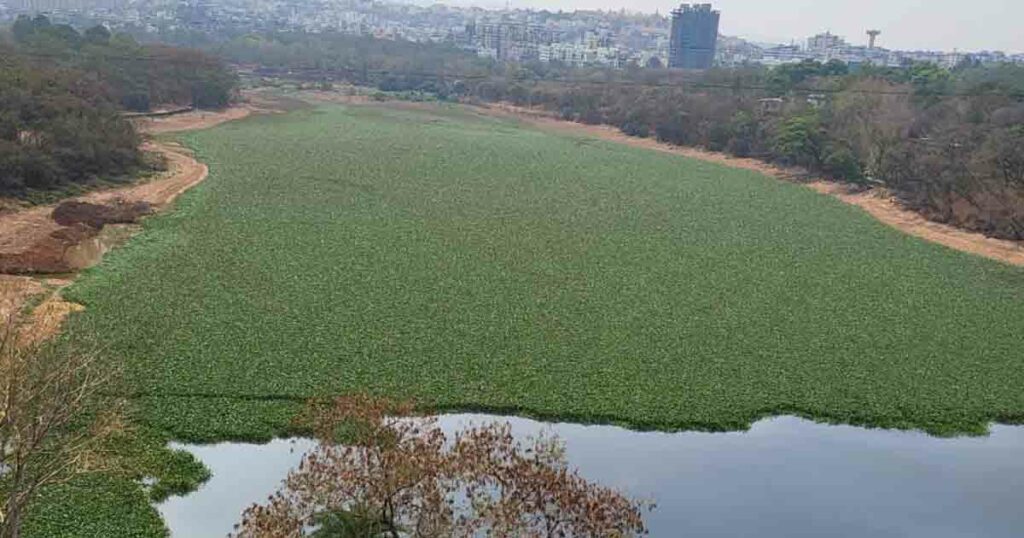Pune : Chemical that kills water hyacinth not yet tested; PMC writes to environmental institute

Pune : Chemical that kills water hyacinth not yet tested; PMC writes to environmental institute ( Representational Image )
The Pune Municipal Corporation (PMC) had experimented with the use of Drenzyme chemical to destroy water hyacinth in Ramnadi. After this experiment was successful, it was found that the water hyacinth had dried up within four days. A letter was then written to the Pollution Control Board to test whether the use of Drenzyme has any toxic effects on water and aquatic life.
But the board has told the PMC that there is no system to conduct such a test. So now a letter has been sent from the PMC to the National Environmental Engineering Research Institute (NEERI).
Speaking to Pune Pulse, Mangesh Dighe, Environmental Conservation Officer, PMC, said “We have sent a letter to NEERI to visit Ramnadi & test if there are any toxic effects of the Drenzyme chemical. We will get a response from NEERI regarding this till Monday.”
As per further information, citizens have been disturbed by the water pollution in Pashan Lake, Ramnadi. Pune residents are accusing the administration that water hyacinth is not settled permanently as financial math is involved in water hyacinth. Therefore, the PMC is thinking of using Drenzyme chemical to find a permanent solution to the water plant. An experiment was carried out on an experimental basis in a basin of water in the Ramnadi.
At that time, it was seen that the water leaves had dried up. After that, the environmentalists demanded to test whether the chemical has a toxic effect on water or aquatic life.
The result was seen four days after using the Drenzyme chemical to remove algae from a rock pond. Pune Municipal Commissioner Vikram Kumar, Additional Commissioner Dr Kunal Khemnar and PMC officials personally inspected it. Khemnar had said that as the report of the sent samples came positive, a decision would be taken to use this chemical further. However, the municipal administration has clarified that they will take a decision after receiving the report on whether the Drenzyme chemical is toxic or not.
Shreyas Vange










